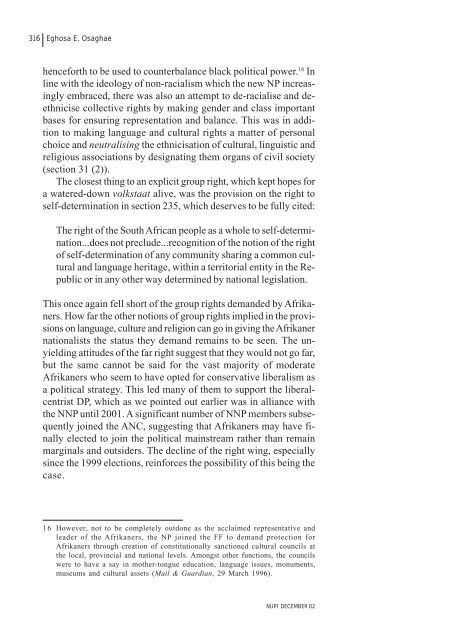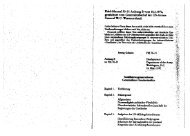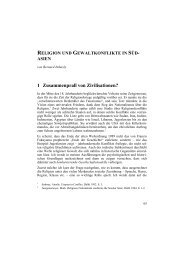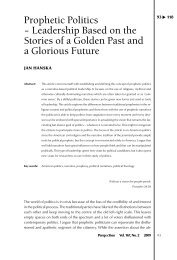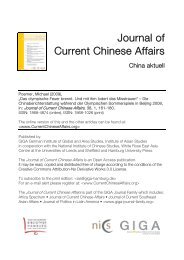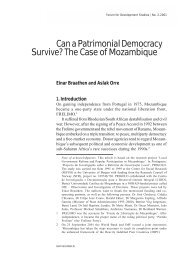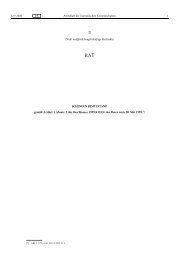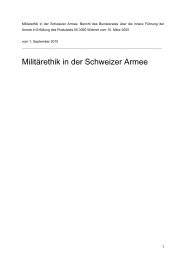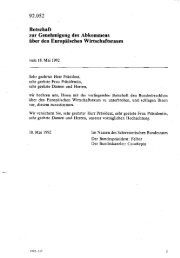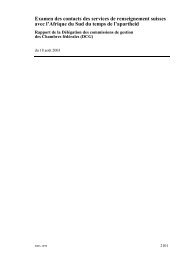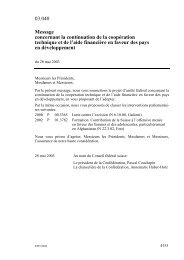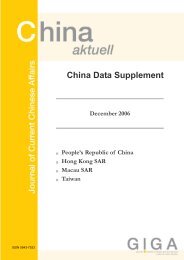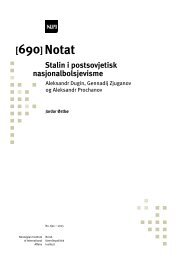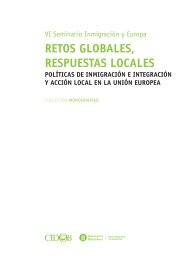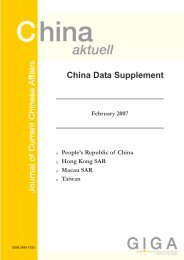What Democratisation Does to Minorities Displaced from Power: The ...
What Democratisation Does to Minorities Displaced from Power: The ...
What Democratisation Does to Minorities Displaced from Power: The ...
You also want an ePaper? Increase the reach of your titles
YUMPU automatically turns print PDFs into web optimized ePapers that Google loves.
316<br />
Eghosa E. Osaghae<br />
henceforth <strong>to</strong> be used <strong>to</strong> counterbalance black political power. 16 In<br />
line with the ideology of non-racialism which the new NP increasingly<br />
embraced, there was also an attempt <strong>to</strong> de-racialise and deethnicise<br />
collective rights by making gender and class important<br />
bases for ensuring representation and balance. This was in addition<br />
<strong>to</strong> making language and cultural rights a matter of personal<br />
choice and neutralising the ethnicisation of cultural, linguistic and<br />
religious associations by designating them organs of civil society<br />
(section 31 (2)).<br />
<strong>The</strong> closest thing <strong>to</strong> an explicit group right, which kept hopes for<br />
a watered-down volkstaat alive, was the provision on the right <strong>to</strong><br />
self-determination in section 235, which deserves <strong>to</strong> be fully cited:<br />
<strong>The</strong> right of the South African people as a whole <strong>to</strong> self-determination...does<br />
not preclude...recognition of the notion of the right<br />
of self-determination of any community sharing a common cultural<br />
and language heritage, within a terri<strong>to</strong>rial entity in the Republic<br />
or in any other way determined by national legislation.<br />
This once again fell short of the group rights demanded by Afrikaners.<br />
How far the other notions of group rights implied in the provisions<br />
on language, culture and religion can go in giving the Afrikaner<br />
nationalists the status they demand remains <strong>to</strong> be seen. <strong>The</strong> unyielding<br />
attitudes of the far right suggest that they would not go far,<br />
but the same cannot be said for the vast majority of moderate<br />
Afrikaners who seem <strong>to</strong> have opted for conservative liberalism as<br />
a political strategy. This led many of them <strong>to</strong> support the liberalcentrist<br />
DP, which as we pointed out earlier was in alliance with<br />
the NNP until 2001. A significant number of NNP members subsequently<br />
joined the ANC, suggesting that Afrikaners may have finally<br />
elected <strong>to</strong> join the political mainstream rather than remain<br />
marginals and outsiders. <strong>The</strong> decline of the right wing, especially<br />
since the 1999 elections, reinforces the possibility of this being the<br />
case.<br />
16 However, not <strong>to</strong> be completely outdone as the acclaimed representative and<br />
leader of the Afrikaners, the NP joined the FF <strong>to</strong> demand protection for<br />
Afrikaners through creation of constitutionally sanctioned cultural councils at<br />
the local, provincial and national levels. Amongst other functions, the councils<br />
were <strong>to</strong> have a say in mother-<strong>to</strong>ngue education, language issues, monuments,<br />
museums and cultural assets (Mail & Guardian, 29 March 1996).<br />
NUPI DECEMBER 02


